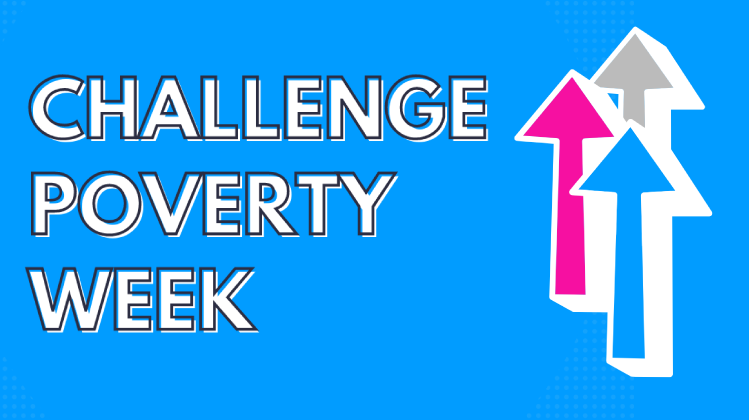Challenge Poverty Week 2021

30/09/2021
News
Challenge Poverty Week (4-10th Oct.) is an opportunity for you to raise your voice against poverty and unite with others in calling for a more just and equal Scotland. Find out more about the aims and messages of the week and how you can get involved at the campaign website.
At One Parent Families Scotland we know that poverty is a life-threatening condition which affects a significant percentage of the population. Governments needs to prioritise the outcomes of poverty which, unlike coronavirus, is and has always been a persistent affliction on members and especially single parent families within our society.
- Satwat Rehman, Director, One Parent Families Scotland

Daily Themes for Challenge Poverty Week
On each day during Challenge Poverty Week, we will focus on a different theme. We will post daily on on social media channels.
The themes for CPW 2021 will be:
- Environment – Tuesday 5th October
- Social security – Wednesday 6th October
- Employment – Thursday 7th October
- Health – Friday 8th October
- Public services – Saturday 9th October
- Communities – Sunday 10th October

Challenge Poverty Week 2021
This year’s Challenge Poverty Week comes at a critical time as we continue to feel the economic and social impact of the pandemic. Satwat Rehman, Director OPFS, said:
“As ever, the people who are struggling to keep heads above water are those who already had lower incomes, insecure work and who are balancing caring responsibilities with employment. Single parents, most of whom are women, are at the sharp end of these inequalities and the pandemic has only made things harder.
As a society we have a strong sense of decency and compassion, we have made ending child poverty our national mission and we must now do all we can to ensure that we achieve this through providing quality work, training and education opportunities, increasing income from social security and employment and reducing household costs. Whilst this will not be easy against a backdrop of the £20 per week UC cut, and rising energy and food prices, we believe that this can change. This is the message we want to give to our supporters, who we hope will share our calls to action far and wide: together we can end poverty for single parent families.”
One Parent Families Scotland (OPFS) evidence to the Social Justice and Social Security Committee
Children in single parent families in Scotland are more likely to live in poverty, and for longer, than couple families. OPFS response to the committee’s areas under consideration, which included:
- Meeting the child poverty targets.
- Priorities for 2022-23 budget.
- Anti-poverty measures more generally.
- How gender based budgeting can help us identify measures that are more effective in tackling poverty/child poverty.
Take a look at our full response document to the committee.
Download OPFS response